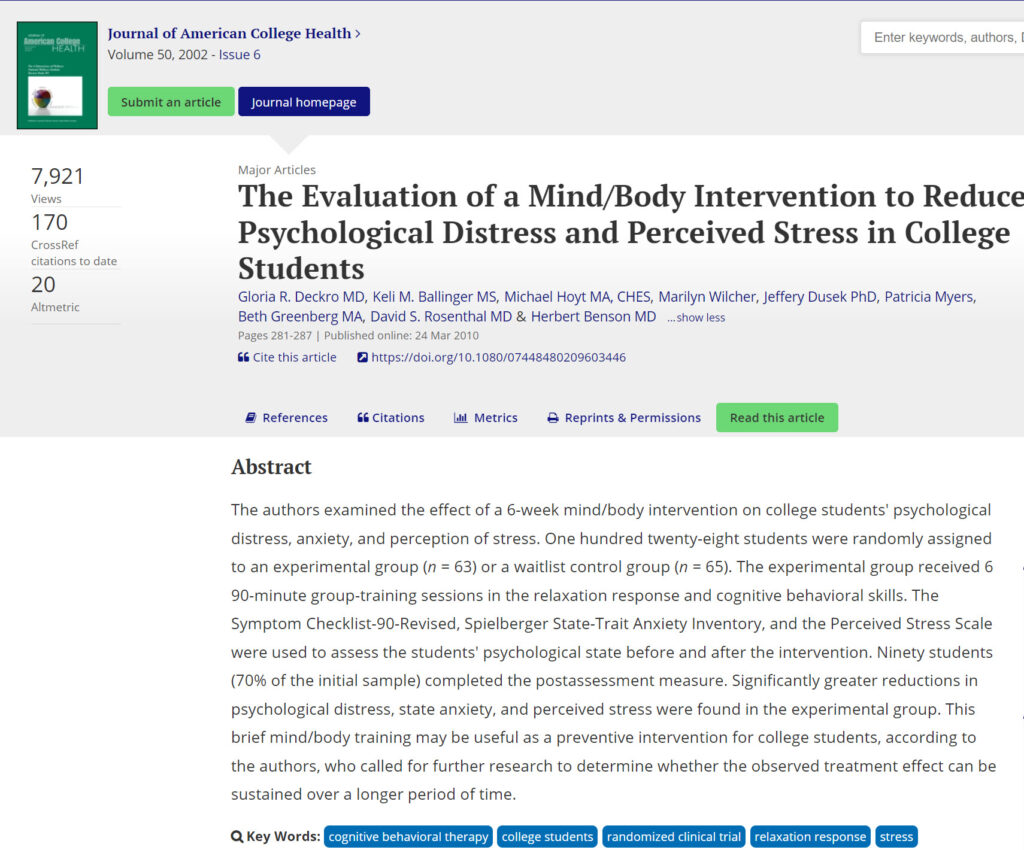The authors examined the effect of a 6-week mind/body intervention on college students’ psychological distress, anxiety, and perception of stress. One hundred twenty-eight students were randomly assigned to an experimental group (n = 63) or a waitlist control group (n = 65). The experimental group received 6 90-minute group-training sessions in the relaxation response and cognitive behavioral skills. The Symptom Checklist-90-Revised, Spielberger State-Trait Anxiety Inventory, and the Perceived Stress Scale were used to assess the students’ psychological state before and after the intervention. Ninety students (70% of the initial sample) completed the post-assessment measure. Significantly greater reductions in psychological distress, state anxiety, and perceived stress were found in the experimental group. This brief mind/body training may be useful as a preventive intervention for college students, according to the authors, who called for further research to determine whether the observed treatment effect can be sustained over a longer period of time.
The Evaluation of a Mind/Body Intervention to Reduce Psychological Distress and Perceived Stress in College Students
Publication
Journal of American College Health
50(6):281-7
Abstract
Web and Email Links
Related Listings
Journal
Intelligence
High intelligence is touted as being predictive of positive outcomes including educational success and income level. However, little is known about the difficulties experienced among this population. Specifically, those with a high intellectual capacity (hyper brain) possess overexcitabilities in various domains that may predispose them to certain psychological disorders as well as physiological conditions involving elevated sensory, and altered immune and inflammatory responses (hype […]
Journal
The Clinical Journal of Pain
The treatment of chronic pain is costly and frustrating for the patient, health care provider, and health care system. This is due, in part, to the complexity of pain symptoms which are influenced by behavior patterns, socioeconomic factors, belief systems, and family dynamics as well as by physiological and mechanical components. Assessment of treatment outcomes is often limited to the patient's subjective, multidimensional, self-reports. Outcome measures based on data about return t […]
Journal
Psychosomatic Medicine
Oxygen consumption, carbon dioxide production, and respiratory rate are significantly decreased during the practice of a new, easily-learned relaxation technique. The elements of the technique are a mental device to prevent distracting thoughts, a passive attitude, decreased muscle tonus, and a quiet environment which is as free of visual and auditory stimuli as possible. Sitting quietly with the eyes either open or closed failed to produce the same changes. These physiologic changes […]

